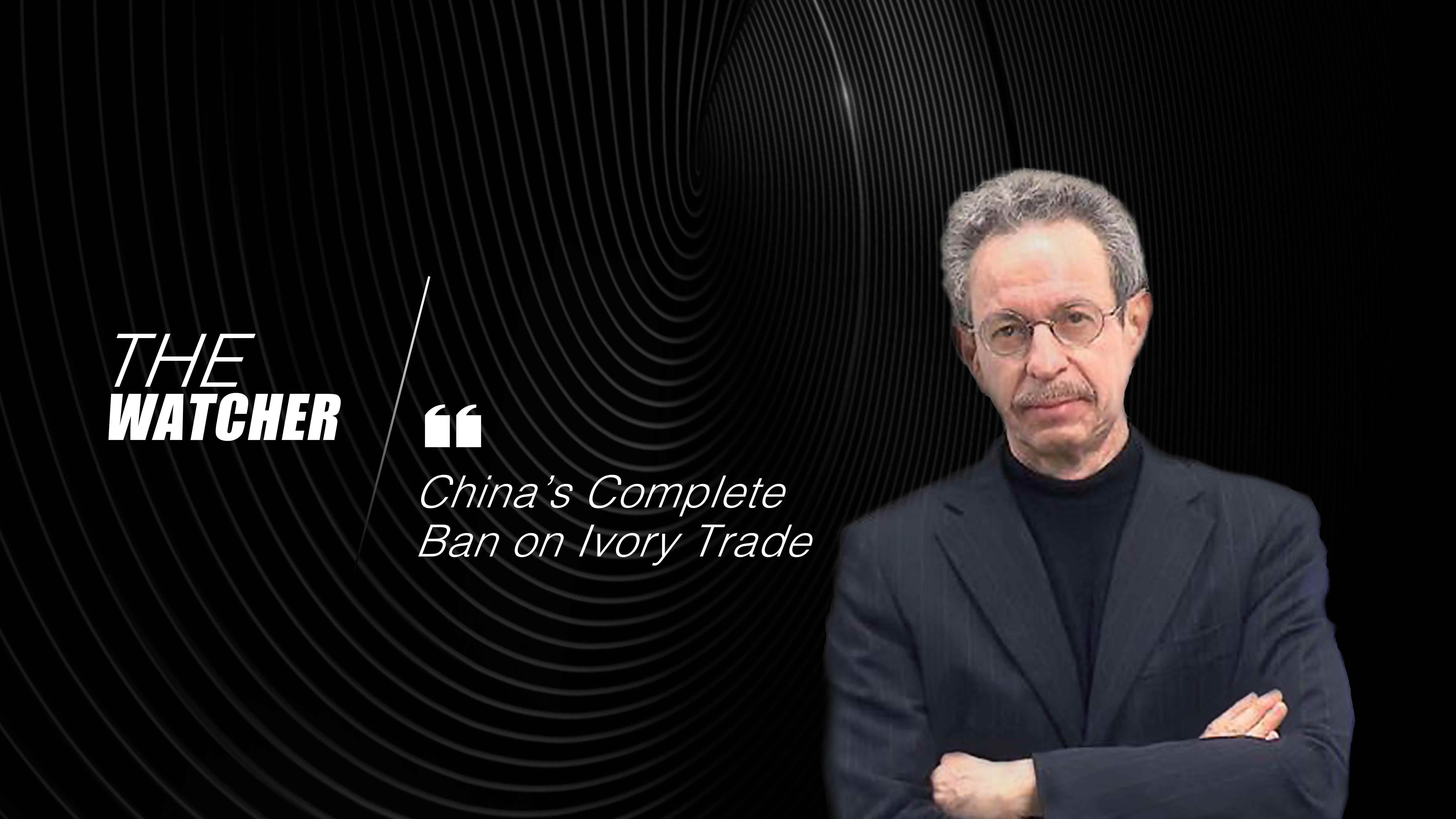
Opinions
15:23, 20-Jan-2018
The Watcher: Stories behind China’s complete ban on ivory trade
By Robert L. Kuhn

I’m Robert Lawrence Kuhn and here’s what I’m watching... China’s Complete Ban on Ivory Trade.
This may seem like a small story about China, compared to, say, containing financial risk, eliminating poverty, and curbing pollution – China’s “three big battles”. Yet there is a larger story here: China recognizing its responsibilities in the global community – that while China faces domestic challenges, China must begin contributing to the global commons.
Since the 1970s, killing elephants to sell their ivory tusks – called “poaching” – has threatened the survival of elephants in Africa and the Chinese market, not without cause, is blamed for fueling the demand. China has been the largest importer of ivory, reportedly accounting for up to 70 percent of the global demand, which requires the killing of about 30,000 African elephants each year or about 100 elephant deaths every day.
As of January 1, 2018, China has banned all domestic ivory trade and processing. This complete ban affirms China taking a global leadership role in protecting elephants and transforms China from villain to hero. In a fine example of what happens when China and the US cooperate for the global good, two months after the US government destroyed about six tons of ivory in Denver, the Chinese government destroyed about six tons of ivory in Guangdong.
Reducing consumer interest in ivory is critical. A public outreach campaign showed the complexity of elephant emotions – “Mom, I have teeth” – reduced the propensity of the group most likely to purchase ivory from 54 percent to 26 percent. But, changing consumer behavior cannot stop criminals profiting from illegal smuggling and trade of ivory.
Solutions are not simple: markets are adaptive, and because the demand of Chinese customers for ivory still exists, the Chinese government ban might push the ivory trade underground, which would raise ivory prices and stimulate even greater poaching and killing. Some worry that China’s ivory trade could be transferred to other Asian countries, such as Laos, which largely serves Chinese customers. It would be easy enough for the Chinese government to look away, with hands that appear to look clean. So, two issues: one is saving elephants and the other is testing the commitment of the Chinese government.
I’m keeping watch. I’m Robert Lawrence Kuhn.
(Dr. Robert Lawrence Kuhn is a CGTN anchor, a public intellectual, international corporate strategist and investment banker.)

SITEMAP
Copyright © 2018 CGTN. Beijing ICP prepared NO.16065310-3
Copyright © 2018 CGTN. Beijing ICP prepared NO.16065310-3